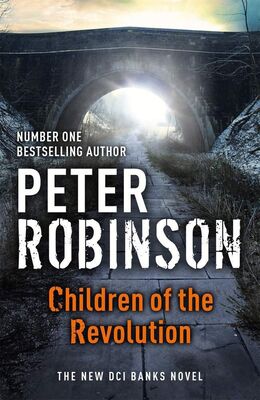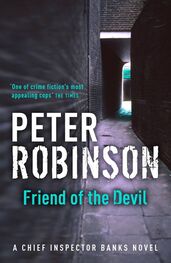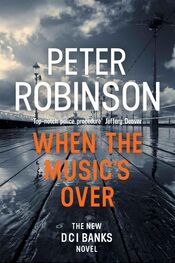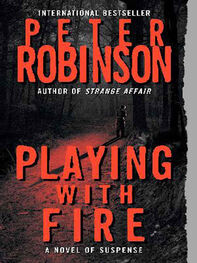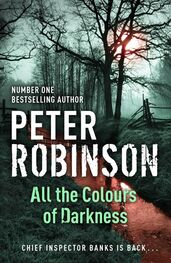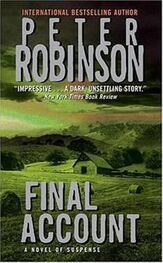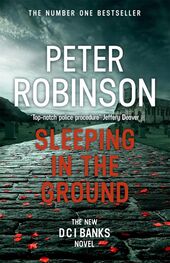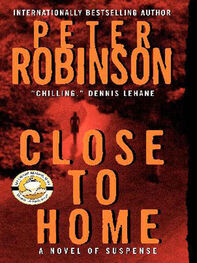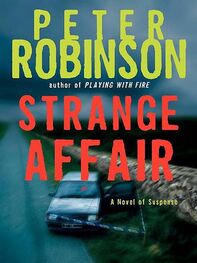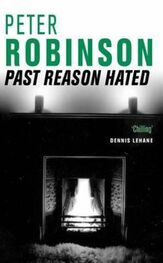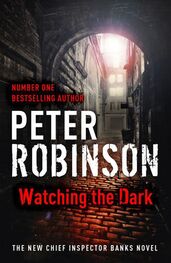‘I don’t—’ Banks began, but before he could finish he felt a heavy blow to the back of his head that sent stars flashing through his brain and seemed to put so much pressure on his eyeballs from the inside that he thought they would burst from their sockets. It was over in a second, or less, and he let the welcome darkness flood into his veins as he slid to the floor.
It could have been hours or days since he fell unconscious, Banks felt, as he struggled to sit up, his head a mass of raging pain, the bile rising in his gorge. He was immediately sick on the carpet and slid down to the floor again. This time he lay there, trying to take slow, deep breaths, aware of his heart pounding and the blood rushing in his ears. He didn’t know if any permanent damage had been done, but there seemed to be quite a bit of blood. It had soaked through his collar and into the carpet around where his head had lain. Beside the stain he saw the cut-glass decanter. So that was what Litton had hit him with. Christ, he thought, it could have killed him.
When he felt able, he struggled to a sitting position in the armchair and laid his head against the back. Bugger Litton’s lace antimacassars. He still felt sick, and his head and his thoughts throbbed and swirled. His vision was blurred and the back of his head burned. After spending a while sitting there, he risked a glance at his watch, and slowly, the face and hands came into focus. It was going on for midnight. That was at least two hours or more since he had arrived. If Litton had made a run for it he had a hell of a start. Banks listened as best he could with the pounding in his head, but he could hear no other sounds in the house.
The next Herculean task was to get to the bathroom and clean up. The stairway looked as if it stretched about as high as the one in the Led Zeppelin song. Banks’s first attempt to get to his feet failed miserably, his legs like rubber, and it wasn’t until about ten minutes later that he felt up to trying again, gripping the sides of the armchair and pushing with all his might. The world swam, and his head hammered; he felt so dizzy that he thought he might fall over again, but he made it. He stood swaying a while until he thought he had regained a modicum of his balance and made a few hesitant steps towards the staircase.
He found the bathroom easily enough and set the taps running in the sink. When the temperature was right and he leaned forward to stick his head under the water, he felt a wave of nausea and dizziness and almost slid to the floor. But he held on to the sink and let the water flow across his head like a tropical downpour.
Afterwards, he touched the back of his head and felt a lump the size of a bird’s egg, but the bleeding seemed to have stopped, and most of the blood had washed away. He grabbed a large fluffy white towel, which he used to dry his head, carefully patting the area around the wound. The towel came away a bit pink with blood, but Banks thought it was just the residue. His vision had cleared, his balance seemed restored, and all that remained was the throbbing pain. He ransacked the bathroom cabinet and found a bottle of prescription painkillers plastered with warnings. He palmed two of them and put the bottle in his pocket, then tottered downstairs and poured himself a whisky and soda to wash them down with. A few minutes later, he was ready for his first small steps into the world outside.
Litton’s car was gone, but the Porsche stood exactly where it had been. Fog swirled around the grounds like a Hammer movie set. He had no idea what Litton was up to now, though the only explanation he could come up with was flight. He had realised the game was up and was making his escape. But Banks also realised that so much of what Litton had done, so much of what made him tick, was tied up with Oliver and Lady Chalmers, that there was a chance he had flown to one or the other seeking sanctuary and support. Given that Oliver didn’t know the secret of his own birth, Lady Chalmers would probably be the better choice. She was a woman, Litton would figure, and though she may have betrayed him to Banks, he would imagine that with a little charm, fake humility and a plea for family loyalty — especially for Oliver’s sake — he could perhaps win back her trust and head the trouble off at the pass. He had an injured police officer to cope with, of course, but no doubt he could explain that, too. And perhaps with the Litton and Chalmers spheres of influence combined, he could get enough people who counted to swallow it all.
Banks got in his car and, fearing that Litton had removed some essential engine part, stuck the key in the ignition and gritted his teeth as he turned it. The engine started first time, as it always did. Wherever Litton was going, Banks realised, north or south, there was only one road to get there. It branched north and south a few miles to the east, but up to that point, the only other way you could go was east. That part of the Peak District wasn’t exactly criss-crossed by north — south routes.
Banks knew that he probably shouldn’t be driving, especially with the painkillers he had taken, but he felt fit enough to do it, and he was damned if he was going to spend the night either at Litton’s house or in a local hospital. The fog didn’t help, though visibility wasn’t anywhere near as bad as it could have been.
Not more than three miles along the road, he saw flashing lights, blurred in the mist, ahead of him, and a vague shape in the middle of the road, which was blocked by patrol cars. It was a uniformed police officer, waving his torch around in circles. Banks pulled gently to a halt and rolled down his window to see a young patrol constable.‘What’s the problem, officer?’ he asked.
‘I’m sorry, sir. This road is closed due to an accident. I’m afraid you’ll have to turn back.’
Banks could just make out, beyond the roadblock, a part of the drystone wall knocked down, but he couldn’t see beyond that. Not certain whether it was worth the risk or not, Banks let his curiosity get the better of him and pulled out his warrant card. ‘Anything I can help you with?’ he said, flashing the card.
The officer seemed to come to attention immediately. ‘No, sir. We’ve got everything under control.’
‘What happened?’
‘Car went through the wall and into the river.’
‘The driver?’
‘We haven’t found a body yet, only the car, half-submerged. It looks as if the driver might have got out through his window, but the current’s pretty strong. It’s doubtful anyone survived. If he had, it would be a first.’
‘Anything on the car?’
‘Registered to Mr Anthony Litton, sir. He’s the father of Oliver Litton. You’ve heard of him?’
‘Indeed I have.’
The constable shook his head. ‘And just the other night, not more than two miles away, his sister-in-law ran through a fence. Luckily, she came out of it all right.’
‘Well, if I can’t help, I’ll be on my way,’ said Banks, thankful that the young constable hadn’t asked him what he was doing on a minor road so far off his patch. He also realised that he probably looked a bit of a mess, and he was glad the constable hadn’t shone his torch on him. ‘I’m afraid I don’t know the roads around here very well,’ Banks said. ‘And I don’t have satnav. How do I get north?’
The constable scratched his head. ‘Well, sir, you can’t really get there from here, if you catch my drift. Not with this road out of commission. I’d say your best bet is to turn back, keep going till you see the signposts to Stockport and Manchester Airport, then it’s a hop, skip and a jump to the M62. That’ll be your quickest way.’
‘Thank you,’ Banks said, then backed up to a lay-by to make his turn, as the road was quite narrow. He was aware of the young constable watching him as he went. Perhaps he had smelled the whisky on his breath, or noticed the blood on his collar. He could also feel the painkillers kicking in, the throbbing in his head receding to a distant hammering, like someone fixing a fence in the far distance, and a pleasant, heavy warmth filled his head and his arms. He thought some loud music might help him stay awake, but his brain rejected every choice. He needed to think, no matter how difficult it was. In the end, he settled for silence. It would have to be enough
Читать дальше